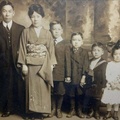
Greg Robinson
@GregGreg Robinson, nativo de Nueva York, es profesor de historia en la Universidad de Quebec en Montreal , una institución franco-parlante de Montreal, Canadá. Él es autor de los libros By Order of the President: FDR and the Internment of Japanese Americans (Editorial de la Universidad de Harvard, 2001), A Tragedy of Democracy; Japanese Confinement in North America (Editorial de la Universidad de Columbia, 2009), After Camp: Portraits in Postwar Japanese Life and Politics (Editorial de la Universidad de California, 2012), y Pacific Citizens: Larry and Guyo Tajiri and Japanese American Journalism in the World War II Era (Editorial de la Universidad de Illinois, 2012), The Great Unknown: Japanese American Sketches (Editorial de la Universidad de Colorado, 2016), y coeditor de la antología Miné Okubo: Following Her Own Road (Editorial de la Universidad de Washington, 2008). Robinson es además coeditor del volumen de John Okada - The Life & Rediscovered Work of the Author of No-No Boy (Editorial del Universidad de Washington, 2018). El último libro de Robinson es una antología de sus columnas, The Unsung Great: Portraits of Extraordinary Japanese Americans (Editorial del Universidad de Washington, 2020). Puede ser contactado al email robinson.greg@uqam.ca.
Última actualización en julio de 2021
Historias de Este Autor
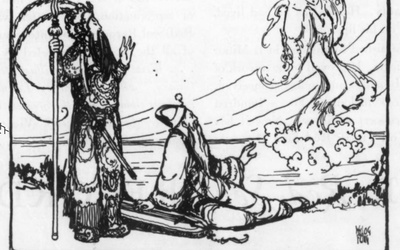
Parte I: Los primeros años
12 de mayo de 2024 • Greg Robinson
Ken Nakazawa se destacó entre los pocos Issei que fueron aceptados en la cultura estadounidense dominante en los años previos a la Segunda Guerra Mundial. Nakazawa fue un profesor muy respetado en la Universidad del Sur de California (uno de los primeros japoneses étnicos en la facultad de una importante universidad estadounidense), así como conferencista, ensayista, dramaturgo e intérprete de la cultura japonesa. También se desempeñó como diplomático y líder comunitario en el consulado japonés en Los Ángeles. Sin embargo, …
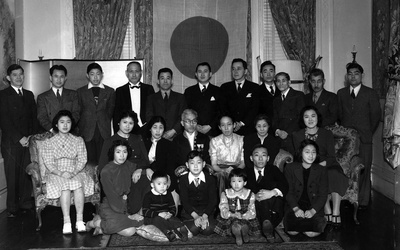
Japón y el comercio algodonero de Estados Unidos en la década de 1930
29 de abril de 2024 • Greg Robinson
La historia de Nueva Orleans, como la del resto del sur de Estados Unidos, está fundamentalmente entrelazada con el comercio del algodón. Incluso en el siglo XX, mucho después de la era anterior a la guerra del “Rey del Algodón”, Nueva Orleans reinó como el mercado de algodón más grande del país. Durante este tiempo, el comercio se desplazó a un nuevo centro: Japón. Durante la primera mitad del siglo XX, el algodón en rama representó la mayor parte de …
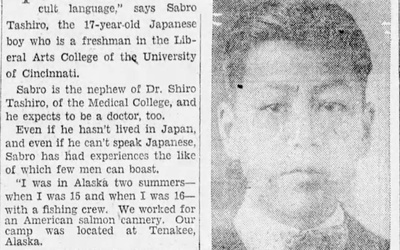
Parte 6: Sabro y Arthur Tashiro - Hermanos polifacéticos
12 de abril de 2024 • Greg Robinson
En esta columna, completaré mi historia de la increíble familia de Aijiro y Nao Tashiro hablando de las vidas de sus hijos menores Sabro (también conocido como Saburo o Sab) y Arthur. Sabro Tashiro nació en New Haven, Connecticut, en febrero de 1910, y se mudó con su familia a Seattle después del final de la Primera Guerra Mundial. Durante el verano de 1925 y 1926, trabajó en una fábrica de conservas de salmón estadounidense en Tenakee, Alaska, junto con …
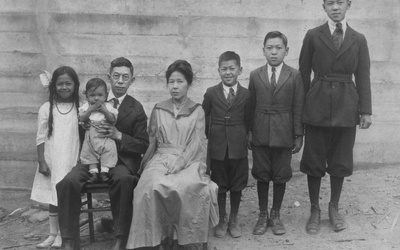
Parte 5: Nao Tashiro: profesora y testigo issei
5 de abril de 2024 • Greg Robinson
Me he embarcado en una serie de columnas sobre la prolífica y talentosa familia Tashiro. Ya publiqué columnas sobre Aijiro “Frank” Tashiro y tres de sus hijos, Kenji (también conocido como Ken) , Aiko y Aiji . Aquí propongo añadir un estudio de Nao Tashiro, la esposa de Aijiro y madre de sus hijos. Nao Tashiro nació como Onaozan “Nao” Hasegawa en la provincia de Echigo (como se llamaba entonces) en el noreste de Honshu, Japón. Su padre era un …
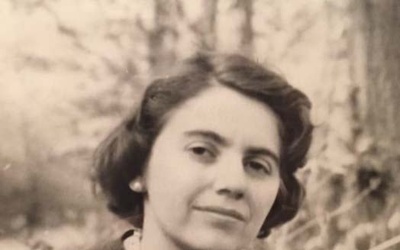
Mi prima Judy: una inspiración
31 de marzo de 2024 • Greg Robinson
Mi querida prima Judy Mackey (Baker) falleció el 11 de febrero de 2024, a la edad de 99 años. Durante su larga carrera como economista, sirvió como modelo e inspiración para muchas personas, especialmente para las mujeres que irrumpen en campos profesionales. Quiero hablar aquí de cómo ella ayudó a dar forma a mi trabajo como historiador y estudioso de los estadounidenses de origen japonés. Nació como Judith Rosenblum en Nueva York en enero de 1925, hija única de Moses …
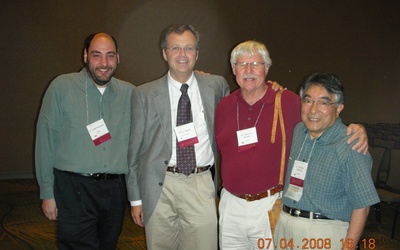
Gratitud por Art Hansen: “Un mentor talentoso y una inspiración”
18 de marzo de 2024 • Greg Robinson , Nichi Bei News
Entre los especialistas en la historia japonés-estadounidense, pocos han hecho una contribución tan duradera como Arthur Hansen. Si bien su trabajo como académico y activista desde hace mucho tiempo es bien conocido en la comunidad nikkei, quiero rendirle homenaje en su papel de talentoso mentor e inspiración, para mí y para muchos otros. (Parte de esta columna está tomada de mi ensayo en un volumen publicado hace 15 años, con motivo del retiro de Art). Me cuesta creerlo ahora, pero …
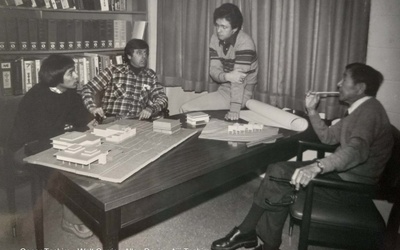
Parte 4 (2): Aiji Tashiro—Arquitecto
5 de marzo de 2024 • Greg Robinson
Lea la Parte 4 (1) >> En 1938, Aiji Tashiro fue contratado como miembro de la facultad en Appalachian State Teacher's College (hoy Universidad Estatal de los Apalaches) en Boone, Carolina del Norte. Fue uno de los primeros nisei contratados como miembro habitual del profesorado de una universidad estadounidense. Se le asignó la tarea de enseñar Historia de la Civilización Occidental y escritura creativa. Además de sus funciones docentes, se desempeñó como Arquitecto Paisajista. Eventualmente diseñaría varios edificios en el …
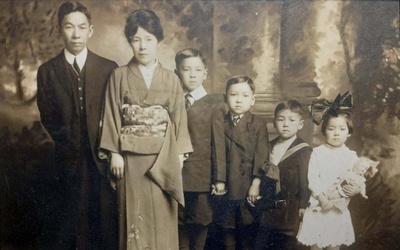
Parte 4 (1): Aiji Tashiro: escritor y atleta
4 de marzo de 2024 • Greg Robinson
El más eminente de los cinco hijos de Aijiro y Nao Tashiro fue sin duda su hijo Aiji (pronunciado “IG”). Escritor, atleta, arquitecto y paisajista, pasó la mayor parte de medio siglo dedicado a su trabajo. Inusualmente para un Nisei, pasó casi toda su carrera viviendo y trabajando en el sur de Estados Unidos, lejos de los centros de población asiático-estadounidense. Aiji Tashiro, conocido como Tash, nació el 6 de julio de 1908 en Pawtucket, Rhode Island, y pasó sus …

Kim Weiskopf: escritor de comedia
2 de febrero de 2024 • Greg Robinson
El fallecido escritor y productor de televisión Norman Lear, que murió en 2023 a la edad de 101 años, ha sido celebrado por revolucionar las comedias televisivas durante la década de 1970 al producir programas emblemáticos como All in the Family , The Jeffersons , Sanford and Son y One. Día a la vez . Las historias de estos programas incluían cuestiones tan graves de la vida real como la intolerancia racial, el divorcio, la violación, el aborto, la pobreza …
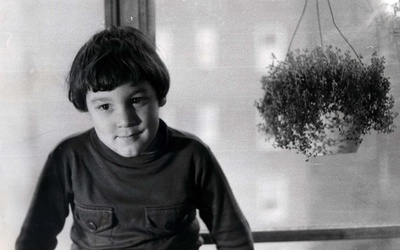
Sobre ser judío
22 de enero de 2024 • Greg Robinson
Recientemente, hice una pieza en memoria de Nichi Bei sobre mi difunto amigo Franklin Odo, un sansei nacido en Hawái. Me referí a la pieza como kaddish (oración del doliente). Lo dije como un homenaje a Franklin y su interés de larga data por los estudios judíos. Franklin estaba tan absorto que incluso co-impartió un curso con la profesora Wendy Bergoffen en el Amherst College sobre judíos y asiáticos en Estados Unidos. Ahora se me ocurre que fue una de …



